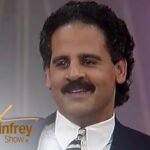How much is Owen Pallett worth?
| Net Worth: | $5 Million |
|---|---|
| Profession: | Professional Composer |
| Date of Birth: | September 7, 1979 (age 42) |
| Country: | Canada |
| Height: | Unknown |
About Owen Pallett
On September 7, 1979, Michael James Owen Pallett was born. Toronto-based multi-instrumentalist, songwriter, and symphonic arranger Owen Pallett previously released music as “Final Fantasy” Pallett began studying classical violin when he was three years old and wrote his first composition when he was thirteen.
Born: September 7, 1979, Toronto, Ontario, Canada
Key Albums:Final Fantasy Has a Good Home (2005), He Poos Clouds (2006), Heartland (2010)
In a very distinctive style, Pallett incorporates a lot of violin and keyboard components into created tunes during his solo performances. He is also well recognized for his work on the albums by the Last Shadow Puppets, Grizzly Bear, Mountain Goats, and Arcade Fire.
Along with performing and recording with Arcade Fire, Pallett is also well-known. Pallett and William Butler, a member of the band Arcade Fire, received a nomination for Best Original Score at the 86th Academy Awards in January 2014 for the music they composed for the movie Her (2013).
Young Years
Michael James Owen Pallett, who was born in Toronto to a church organist father, started playing the piano at the age of three. He later began studying the violin and had a childhood that was heavily influenced by classical music. “My main interest has always been in modern classical music. I abandoned several of my typical childhood pastimes, like playing outside, in favor of staying indoors and listening to contemporary music, “In 2006, Pallett was recalled. “Being completely enamored with Bartók when all of my pals were onto Def Leppard as a child was horrible and demeaning. Even though I’m over it now, it was like having polio as a child.”
Pallett, a composition student at the University of Toronto, fell into his first journey into “pop” music while playing in the band Picastro. “To You Ain’t No Picasso, Pallett recalled, “I was reading an interview with Liz Hysen of Picastro talking about how she thought that the way post-rock bands employ string instruments was a lot of s**t. I joined the band and began playing music with them because I found it absolutely incredible that she shared my sentiments.”
Pallett later played lead vocals for Les Mouches, a group who put out one standout album in 2004 called You’re Worth More to Me Than 1000 Christians. Pallett started penning solo songs after Les Mouches’ albums began “costing a lot of money,”
Beginnings
Pallett started writing tunes using a loop pedal and building large compositions out of numerous violin parts. “It first started off as a bit of a lark, like: ‘let’s see what happens when I plug my violin into this!’” was how it initially began. Pallett asserts.
After the well-known video game franchise, Pallett gave his new endeavor the name Final Fantasy. Pallett then defended himself to Mocking Music, saying, “People criticize me for choosing Final Fantasy as a name,” “I am aware that the name is somewhat silly, but I picked it for very specific reasons. It would be extremely cowardly to change a name.
Pallett had started producing Funeral, the debut album by Montréal rock band Arcade Fire, as he was playing his first concerts as Final Fantasy. After its publication, Funeral became a success, and the band invited Pallett on tour as both the opening act and violinist. Pallett’s concerts gained popularity online through selling homemade CDRs of his debut album, Final Fantasy Has a Good Home, particularly for his surprising cover of Mariah Carey‘s “Fantasy.”
Pallett told ‘Sup Magazine in 2006, “I heard this recording of Ben Gibbard covering Avril Lavigne, and the whole time he’s like: ‘No guys, shut up, this is serious.'” It sounds like ‘no Ben, try harder.’ I want to believe you if you think this music is good.
In 2005, Pallett had already begun to reevaluate his status in the music industry when Has a Good Home was formally released on the German label Tomlab. He explained to Radio Free Canuckistan that he ceased being a musician who lived in Toronto, played shows with Toronto musicians, and composed music for his pals when he joined Arcade Fire on tour. Suddenly, people I didn’t know in other nations started appreciating or disliking my music.
Burgeoning
He Poos Clouds from 2006 reached a wider audience because Pallett had become well-known for his work as an arranger with Arcade Fire, the Hidden Cameras, Grizzly Bear, and Beirut. The second Final Fantasy collection featured a concept album that paired Pallett’s voice with a string quartet and was based on the schools of magic (abjuration, illusion, conjuration, necromancy, enchantment, divination, evocation, and transmutation) in Dungeons and Dragons.
In an era where every instrument can be heard on a record, Pallett told Slant, “In an age where every instrument makes it onto every record, I wanted to make a string quartet record,” In an interview with You Ain’t No Picasso, he said, “I was attempting to make the songs function as simply a vocals and string quartet project, and each song is supposed to be about identifying each of the manifestations of Dungeons and Dragons in our day to day lives.
Pallett tried to make this third album one that could stand totally on its own after He Poos Clouds was “the subject of Pitchforking and of mainstream music press,” Pallett told Clash that it “was a total fucking chore,” and that he soon became bogged down in the labor process. In order to break the impasse, he turned to two EPs in 2008.
In Plays to Please, Pallett performed big-band renditions of songs by Toronto’s Deep Dark United frontman Alex Lukashevsky. He claimed, “I felt it would be interesting to reframe his songs in this incredibly shiny Frank Sinatra way, with these extremely large, set arrangements.
The goal of Spectrum, 14th Century, a compilation of “fake folksongs” recorded in the New York woods with Beirut members, was to acquaint listeners with the imaginary Spectrum, the setting for Pallett’s upcoming third album.
Breakout
Heartland, Pallett’s third album that took three years to complete and featured a Czech orchestra, was ultimately published in 2010. He released the set via Domino globally under his own name due to “the laws of copyright,” A young farmer named Lewis who lives in Spectrum sings psalms to the only deity in the realm—an interventionist God named Owen—before killing him in the album’s “entirely fictional high fantasy” Pallett describes his self-reflexive character study as being about “It’s about becoming aware of the boundaries of the album that he exists in and thinking about the way his surroundings are constructed,”



